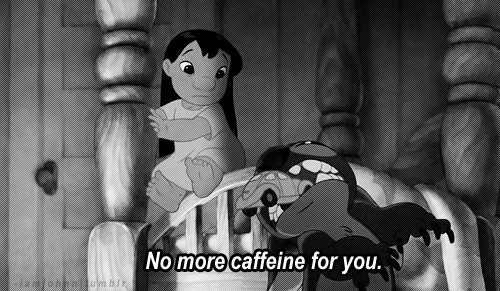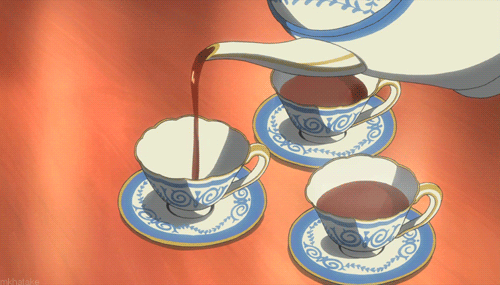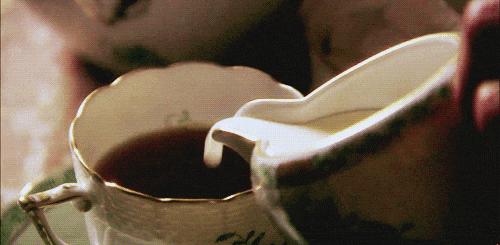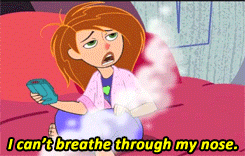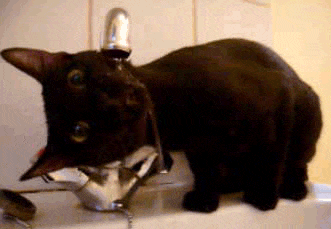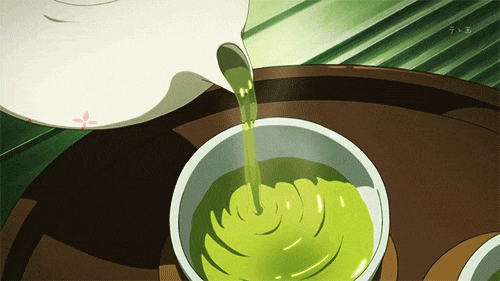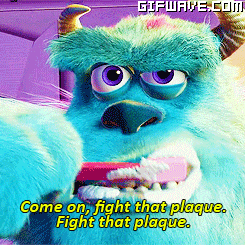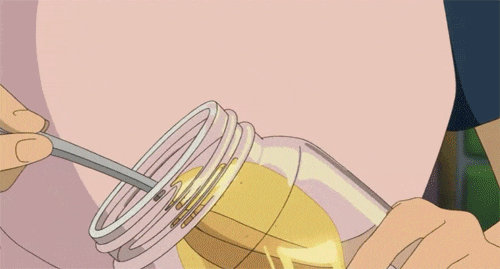This is me calling out everyone who chooses coffee over tea. If you're already on the right side, read on to learn why your choice is the best.
1. Caffeine, But Not Too Much
Friends, I can't survive early mornings without caffeine. Tea has caffeine. Caffeine is known to simulate the brain and improve alertness. It does not have as much caffeine as coffee. Coffee has so much caffeine that it can ruin your sleep potential, even in small quantities. Tea helps you get your caffeine without as much future grogginess. We should all want to avoid grogginess, no?
2. Flavanoids!
Flavanoids are powerful antioxidants found in tea and other foods. Antioxidants have all kinds of health benefits, some of which are still being discovered. Flavanoids support the cardiovascular and nervous systems, fight free radicals, provide anti-inflammatory properties, and help regulate cell cycles. People often panic about little things that might be linked to cancer, so why not embrace things that might be linked to preventing it? While coffee also has a high number of antioxidants, it doesn't provide the magic of reason number three.
3. Protects Lungs
Lab tests showed that water consumption did not protect lungs from secondhand smoke. Inflammation and throat irritation occurred. Black tea consumption protected lungs from secondhand smoke, and no inflammation occurred.
While tea probably can't repair lung damage, it's not a bad choice for individuals unwillingly exposed to secondhand smoke. As someone who just recently visited Las Vegas (smoking is legal everywhere), I value this nugget of information. You should, too.
4. Warms You Up
Cold night? Hot tea. When I'm chilled down to my bones, holding a cup of tea makes my hands and core warm. I'm a huge wimp about the cold, but everyone likes the occasional warm up, right?
5. Improves Metabolism
Green tea speeds up the rate of metabolism. It's a healthy way to improve weight loss efforts without drugs or dangerous eating.
Disclaimer: This author thinks all bodies are beautiful and only promotes weight loss in the interest of creating personal happiness or directly improving your health. Fat =/= unhealthy, friends.
6. Taste
There is an endless world of tea to explore. Flavors, brews, milks, unique sweeteners, and more make millions of combinations possible. My personal favorite is cinnamon black tea with milk and honey. I'm also a huge fan of the Tahitian vanilla tea I found across the street. If you crave it, it's probably available in tea. Coffee always kind of tastes like coffee, no matter what you hide it with. Yuck.
7. Immunity, Skin, and Bones
Alkylamines are chemicals present in black tea as well as other foods. These chemicals live in bacteria, fungi, and parasites. Drinking alkylamines in tea can prime your immune system and make it better at fighting off those compounds in higher quantities. No, drinking them will not make you sick. They don't activate your T cells. They just keep them prepared. These chemicals are not present in coffee.
Tea can also help revive dying skin cells and protect against bone loss. Lots of points for tea, none for coffee.
8. Hydration
Someone in your life has probably told you that tea (and more specifically, caffeine) is a diuretic and makes you lose water. Thus you need to double your water intake when you're drinking tea. This is totally false.
Yes, even though tea does have caffeine, your body's net water gain is still higher than if you were drinking virtually any other beverage, with the obvious exception of water. Tea on a hot day is a good choice.
9. Recovery from Everyday Radiation
Drinking green tea may help in the healing and recovery of cells affected by radiation. While there is no way tea could cure massive radiation, long-term tea drinking has been shown to help cells recover from the everyday radiation we get from x-rays and airport security scans. If you're nervous about daily radiation's impact on your health, drinking green tea can combat your fear.
10. Digestion
The acid and antioxidants present in oolong, pu-erh, and black tea have been known to help you digest foods, especially fats. The acidic quality can help break down fat in the same way your stomach acid does.
I can attest. I go to the bathroom on an extremely regular schedule with lots of thanks to the teas I drink. Coffee, on the other hand, may promote the formation of ulcers.
11. Teeth Health
Tea stains, right? Yes, but if you're brushing your teeth every day, tea will actually aid in the overall health of your mouth.
Tea tends to stain plaque. As long as you're brushing out the plaque, you can keep your teeth in top form! The acid in tea can help kill bacteria that leads to gum disease and tooth decay. Don't overdo it, as the acid can also hurt your mouth. Your body will tell you when you've had enough.
Be careful...
1. Acid! Ahh!
Black, oolong, and some other teas are acidic. If you drink a lot of tea on an empty stomach (especially without sweetener), you will feel like you're going to lose your lunch until you get some food. The nausea and chest pain is not worth it. Drink tea with your meal, after your meal, or in small amounts if you drink it alone.
Acid can also lead to canker sores and other nuisances in your mouth if consumed too often. Your body is slightly alkaline in pH, so too much acid can throw off the balance. Match tea with an alkaline diet whenever possible.
2. "Feeling Full" Illusion
Hot liquid fills your stomach without being high in calories. Limit your number of cups per day such that you don't find yourself eating less food than normal. You may feel full, but your body still needs energy.
I got in some trouble with this one. I was letting tea replace my appetite, consuming less of my meals, and losing weight not too long ago. It's not a healthy replacement for calories and nutrients, folks.
3. Sweet Tea in a Bottle is Not the Same Thing as Tea You Brew and Add Sweetener to
Added sugar is no fun. A bottle of iced tea from a big brand name can take over your sugar needs for the day. You're defeating the purpose of healthy tea drinking if you drink them all the time.
Whenever you can, brew the tea yourself and add small amounts of natural sweetener. Honey has awesome antibacterial properties. Raw sugar is better than processed sugar, and you can control how much you add. Consider sweet tea a treat, not an everyday item.




